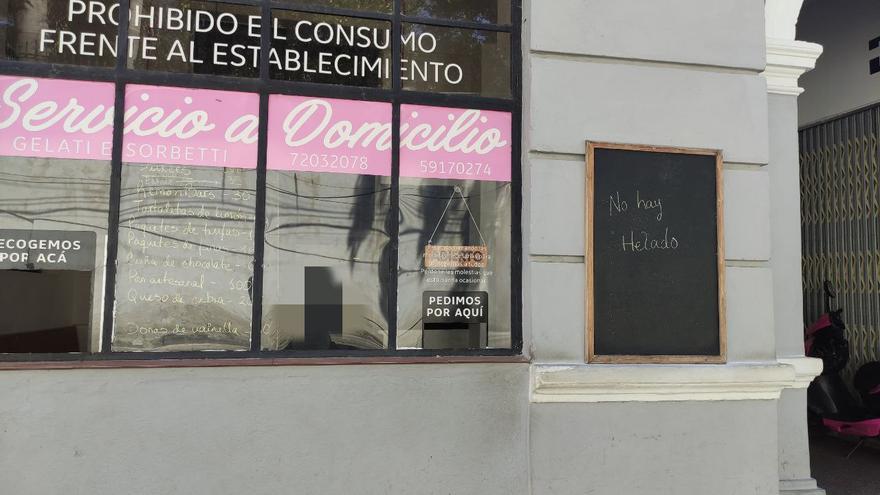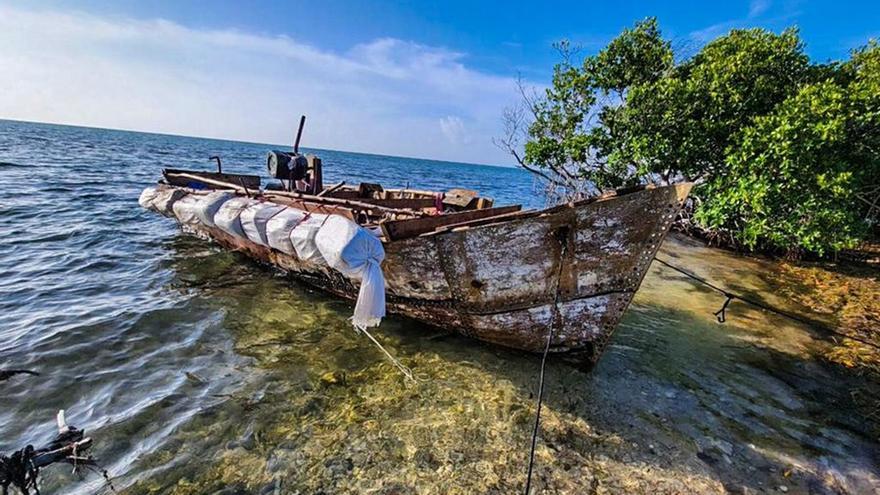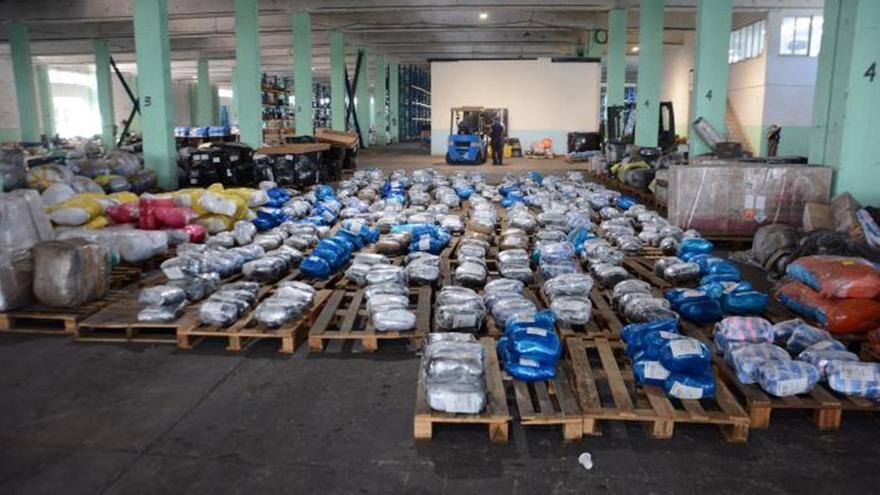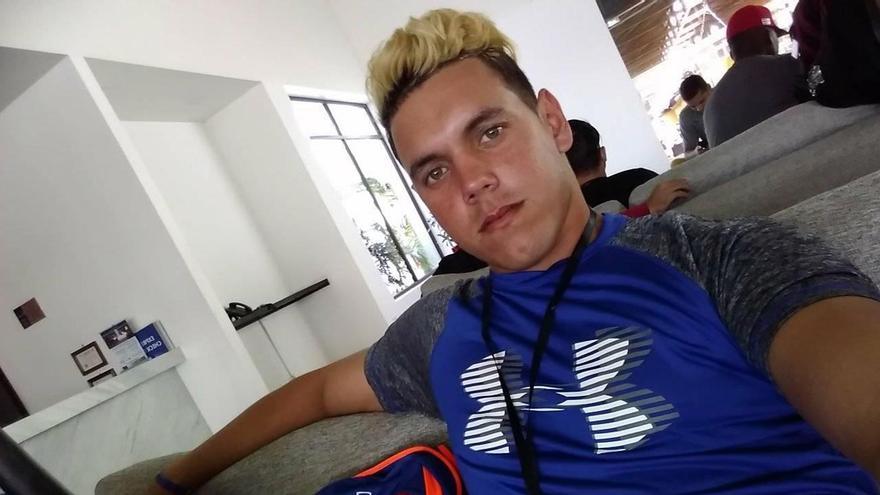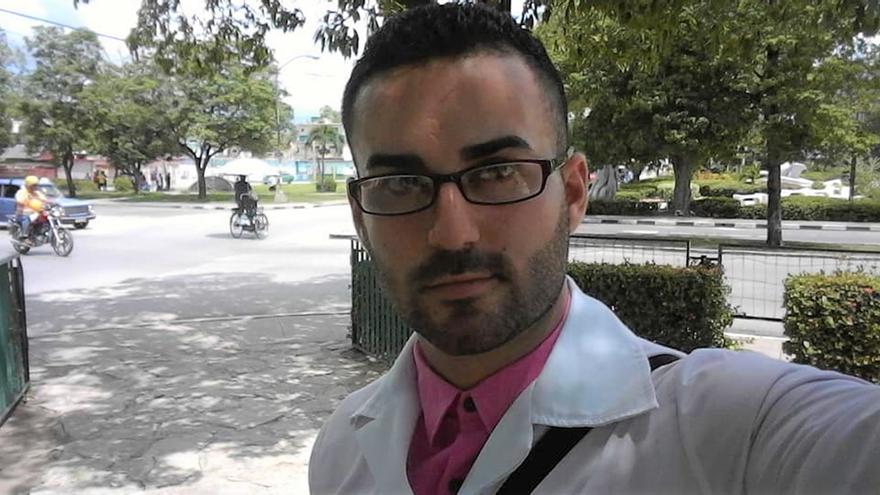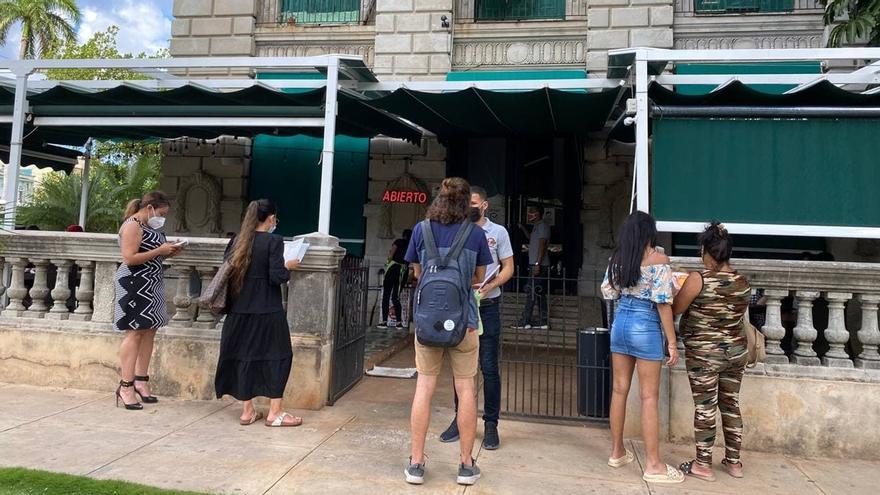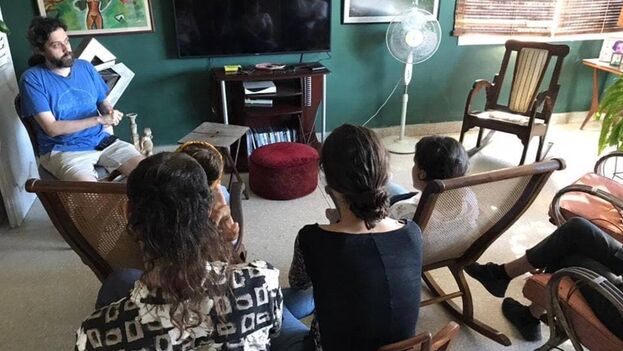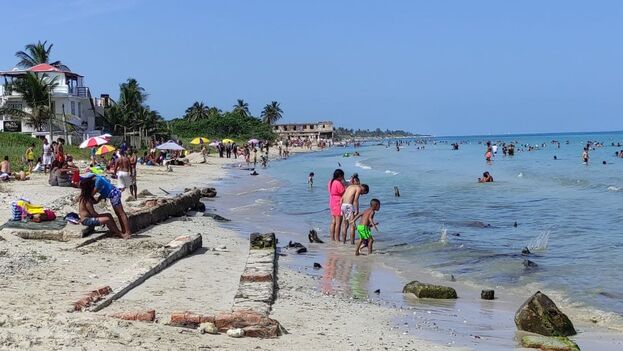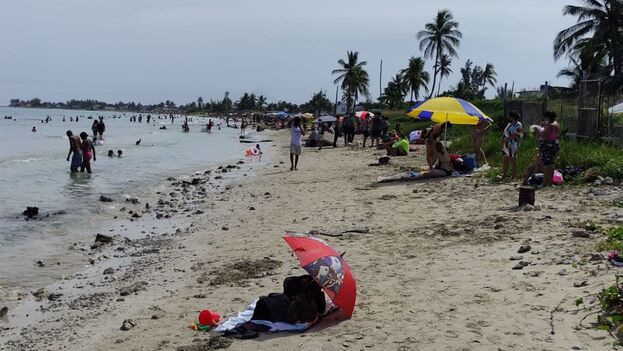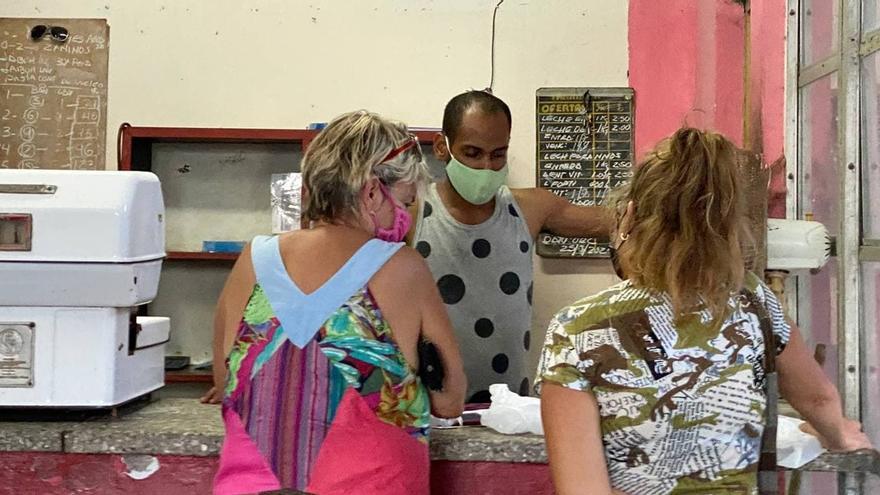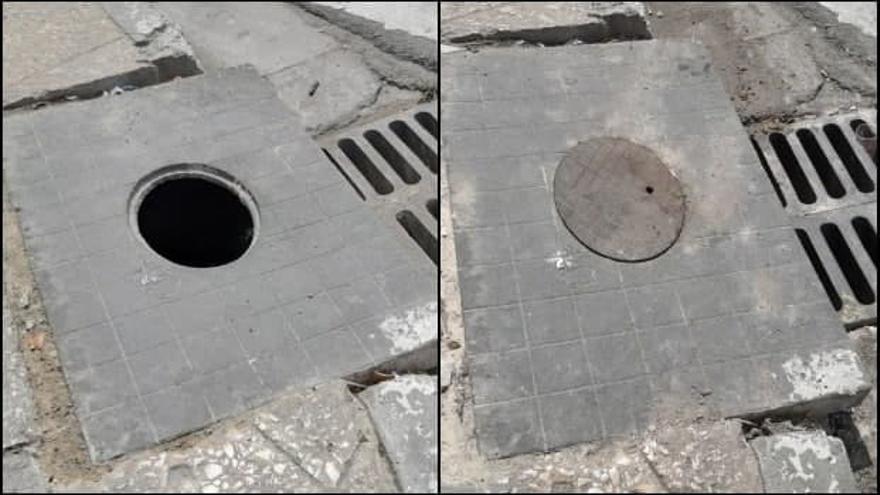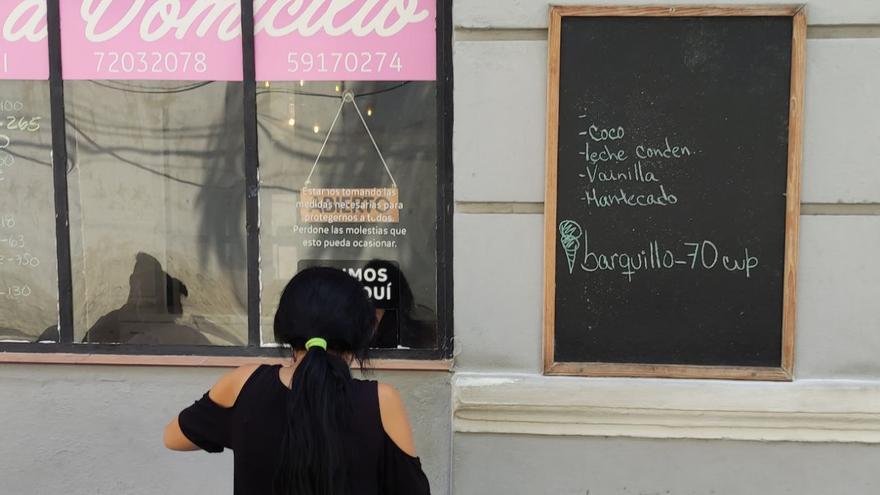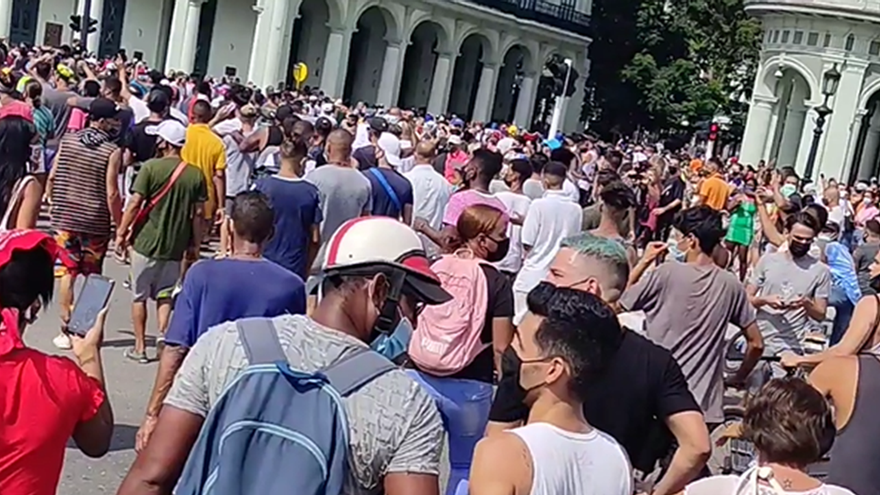
![]() 14ymedio, Elías Amor, Valencia, 11 October 2021 — The cult of personality of the Cuban revolutionary leaders provides, from time to time, hilarious information. Giving the National History Prize to Raúl Castro is that kind of macabre joke that comes from the communist island. Seeing Díaz Canel in a photograph in Granma, holding a large sign, where the name of the old revolutionary now retired from civil and political life appears, in a gesture of worship and, at the same time, of admiration, does not go unnoticed by anybody.
14ymedio, Elías Amor, Valencia, 11 October 2021 — The cult of personality of the Cuban revolutionary leaders provides, from time to time, hilarious information. Giving the National History Prize to Raúl Castro is that kind of macabre joke that comes from the communist island. Seeing Díaz Canel in a photograph in Granma, holding a large sign, where the name of the old revolutionary now retired from civil and political life appears, in a gesture of worship and, at the same time, of admiration, does not go unnoticed by anybody.
Good is what is good, but without a doubt we must ask ourselves: What reasons could exist for granting someone who is neither a historian nor has any idea of this discipline of social sciences a prize of these characteristics? How far do we have to watch the Island fall to the bottom, with these kinds of outbursts that are difficult to explain or justify?
The Cuban communist leaders are so used to doing whatever they want, without demanding any responsibility, that in this case they have overstepped the brakes. And turning Raúl Castro into a National History Prize winner, a historian, is a cruel joke, alien to any standard of reference and that turns this award, like everything they touch, into ashes. A pity, because surely other recipients of it and of the plethora of awards and medals will deserve them, but this is not the case with Raúl Castro.
In addition, the date chosen for the award, October 10, a key date in the history of Cuba that the communists strive to paint differently from how it really happened, and the collaboration of the Union of Cuban Historians are two ingredients with which it is intended to give the award and its recipient a recognition that has no justification.
As in all these cases, among the merits attributed to Raúl Castro by the jury is having lived. Basically, because the old revolutionary did not prepare a thesis, or research, article, document, or even letter or memo of continue reading
But in reality, of those 50 years, Raúl Castro lived more than 40 under the protective wing of his brother, without that projection that he wants to be recognized, so there is no justification for this merit. On the other hand, the jury believes that it obscures the second recognized merit, of which I insist, there are few references, and that it is “his permanent work in the interest of investigating and disseminating more and more, to which he has contributed through articles, books and speeches, among others.”
Raúl Castro has proven to be much more elegant than the cast of sycophants headed by Díaz-Canel who have managed the award for him, and for that reason, he did not even go to pick up the “diploma painting” with which Díaz Canel appears all happy in the photograph the State newspaper Granma, as if the prize was his.
Castro’s absence from the ceremony. held in the Great Hall of the University of Havana, may be saying several things and all of them are very important.
First, that he is fed up with everything and that he has no interest in returning to the arena.
Second, that he is unwilling to give more explicit public support to his dauphin, Díaz-Canel. That he was probably wrong in designating him, and that now, in difficult times when the national economy collapses, society protests and the leadership’s fear is on the rise, Fidel Castro’s brother is not going to show his face to protect anyone in an essay of the famous saying that “each must bear their own fate,” which can end in “every man for himself.”
Raúl Castro is not a historian, that is more than evident, but he is not stupid either, and he knows that in these moments in which the Homeland is facing a process that can lead to the democratic changes that Cuba needs, it is not advisable to make mistakes. His idea must be to pass away without suffering a political change that he does not want, but that he knows, precisely because he has lived for so many years, that it is very close and that it cannot be stopped.
________________________
This text was originally published on the blog Cubaeconomía by the author, a Cuban economist living in Spain.
____________
COLLABORATE WITH OUR WORK: The 14ymedio team is committed to practicing serious journalism that reflects Cuba’s reality in all its depth. Thank you for joining us on this long journey. We invite you to continue supporting us by becoming a member of 14ymedio now. Together we can continue transforming journalism in Cuba.


